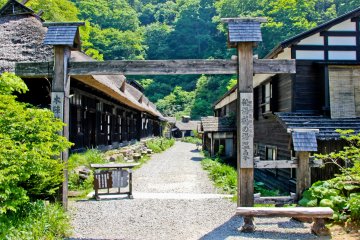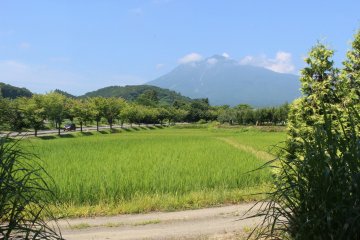Once upon a time, when it was reputed that goblins roamed the wilderness and Namahage stalked naughty children, the land to the north was called Michinoku. It would take weeks to slowly trek your way up, and you may not come back alive. Tohoku was a land of mystery. The famous Japanese Haiku poet, Matsuo Basho made his way into Kisakita, but didn’t get as far as Akita city itself. These days you can get there much faster by plane, bus, train, or car. If you are traveling via Niigata you can even take a ferry.
Despite a fantastic train system, the plane is actually the quickest way to get to Akita. JAL has recently released a yokoso oneworld Tohoku air pass, with a minimum of one sector from just ¥ 5250. It takes less than 200 minutes from Tokyo Station to Akita Station, even with two airport buses to Haneda Airport and from Akita Airport. The Tohoku air pass is only available to passengers holding a return ticket with an oneworld alliance member. Other passengers should consider ANA’s Experience Japan pass, which costs ¥10,500 for this sector. You should budget for another ¥1,600 inclusive for train transfers to Haneda and the bus transfer from Akita Airport.
The fastest train from these two points takes 237 minutes on the Super Komachi Shinkansen bullet train. The standard cost is ¥ 16,970, so if you hold a JR East pass or Japan Rail Pass, you would save money compared with the standard cost for a return trip.
If your idea of saving time is traveling overnight, there are rail or bus options as well. The seasonal Akebono overnight train departs from Ueno in Tokyo each evening, arriving in Akita the next morning. Japan Railway Pass holders only have to pay the accommodation surcharge, starting from nothing for the cheapest flat Goron-to-seat beds. JR Buses operate the Dream Akita-Yokohama overnight bus to Akita. It is a just under nine hours from Tokyo Station (¥9,100). You need to reserve in advance for either option.
Lastly, you can also drive, and if you have a group of four, you can get there for less than the Tohoku Air pass. The tolls cost up to ¥13,500 during weekdays, however with you are registered for a ETC card it is a maximum of ¥1,000 , plus 650km of petrol, say about ¥6,500. So at between ¥7,500 and ¥20,000 each way, it could be cheaper than the plane or bus, but it could be tiring, unless you break up the journey by sightseeing along the way in places like Sendai.









